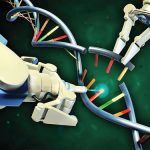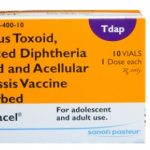Frank Magliochetti ClickStream CEO on today!
Frank Magliochetti, ClickStream CEO will appear on Rich TV Live, a financial focused digital network that has over 80,000 members and on all the popular social media and video sharing channels. The interview will air on Wednesday July 22nd at 9:30 AM ET on https://www.youtube.com/c/RICHTVLIVE and will be available on Clickstream’s social media platforms shortly thereafter.


Frank Magliochetti will provide Rich TV Live’s audience and others with an overview of the upcoming launch of Clickstream’s multi-platform trivia gaming network called WinQuik™, as well as discussing how the in development technology has attracted the likes of Amber Theoharis, Brian Baldinger, Howie Schwab, Mykel Hawke, Joshua Dobbs and Jordan Andino as program hosts.
Clickstream is actively identifying TV and entertainment personalities for programs as the company scales to deliver programming for the world’s first synchronized mobile and digital network. The platform will feature gaming shows and content designed for users seeking the thrill of live competition in order to win real money and prizes.
ABOUT RICH TV LIVE

Rich TV Live has been sharing company news and updates on YouTube, Facebook, LinkedIn, Twitter, Instagram, Blogger and many other social media sites since 2017 with a community of 80,000 members and growing everyday. We have a daily show on YouTube that helps investors get access to in depth information about companies by getting access to CEO interviews, company overviews and Video press releases. Our videos are shared on 8 different social media platforms to help bring more visibility to companies that are under exposed. We take pride in bringing the best trading information and ideas through our trading academy. All the information on RICH TV LIVE is for educational and entertainment purposes. We are not licensed advisors, so all ways do your own due-diligence before investing in anything we talk about. For more information, please visit https://richtvlive.com/.
ABOUT CLICKSTREAM CORPORATION
ClickStream’s business operations are focused on the development and implementation of WinQuik™, a free to play synchronized mobile app and digital gaming platform. The platform is designed to enable WinQuik™ users to have fun, interact and compete against each other in order to win real money and prizes. WinQuik™ is currently in production with shows featuring celebrity hosts Joshua Dobbs, Brian Baldinger, Howie Schwab, Amber Theoharis, Mykel Hawke and Jordan Andino on subject matter ranging from sports trivia, survival, entertainment, the Bible, space and culinary. Game types are set up dynamically with non-live game shows daily and weekly live game shows. As a free-mium platform, ClickStream intends to monetize the platform with corporate sponsors and advertisers. For more information please visit Clickstream’s websites at www.clickstream.technology or www.WinQuik.com as well as on Twitter at @ClickstreamC and @WinQuikApp.
FRANK MAGLIOCHETTI
Frank Magliochetti owes his professional success to his expertise in two areas: medicine and finance. After obtaining a BS in pharmacy from Northeastern University, he stayed on to enroll in the Masters of Toxicology program. He later specialized in corporate finance, receiving an MBA from The Sawyer School of Business at Suffolk University. His educational background includes completion of the Advanced Management Program at Harvard Business School and the General Management Program at Stanford Business School. Frank Magliochetti has held senior positions at Baxter International, Kontron Instruments, Haemonetics Corporation, and Sandoz. Since 2000, he has been a managing partner at Parcae Capital, where he focuses on financial restructuring and interim management services for companies in the healthcare, media, and alternative energy industries. Last year, he was appointed chairman of the board at Grace Health Technology, a company providing an enterprise solution for the laboratory environment. Most recently; Frank was appointed Chairman and Chief Executive Officer at Designer Genomics International, Inc. The Company has accumulated a growing body of evidence that highlights a link between alterations in the immune and inflammatory systems and the development of chronic human disease. The Company is visionary and has established itself as a leader in the field of inflammatory and immune genetic DNA and RNA biomarkers that play a causative role in debilitating conditions, such as atherosclerosis/heart disease, diabetes, arthritis, inflammatory bowel disease, post-traumatic stress disorders (PTSD) and cancer.
A proprietary state-of-the art data mining bioinformatics program, called ‘cluster analysis’ will be used to measure disease development susceptibility with potential for earlier diagnosis and intervention. The company is developing a healthcare program based on its proprietary genetic panels that will allow people to be their own healthcare advocate and take an active role in their health status as well as longevity.

Managing Partner
Parcae Capital
www.parcaecapitalcorp.com
www.frankmagliochetti.com

















